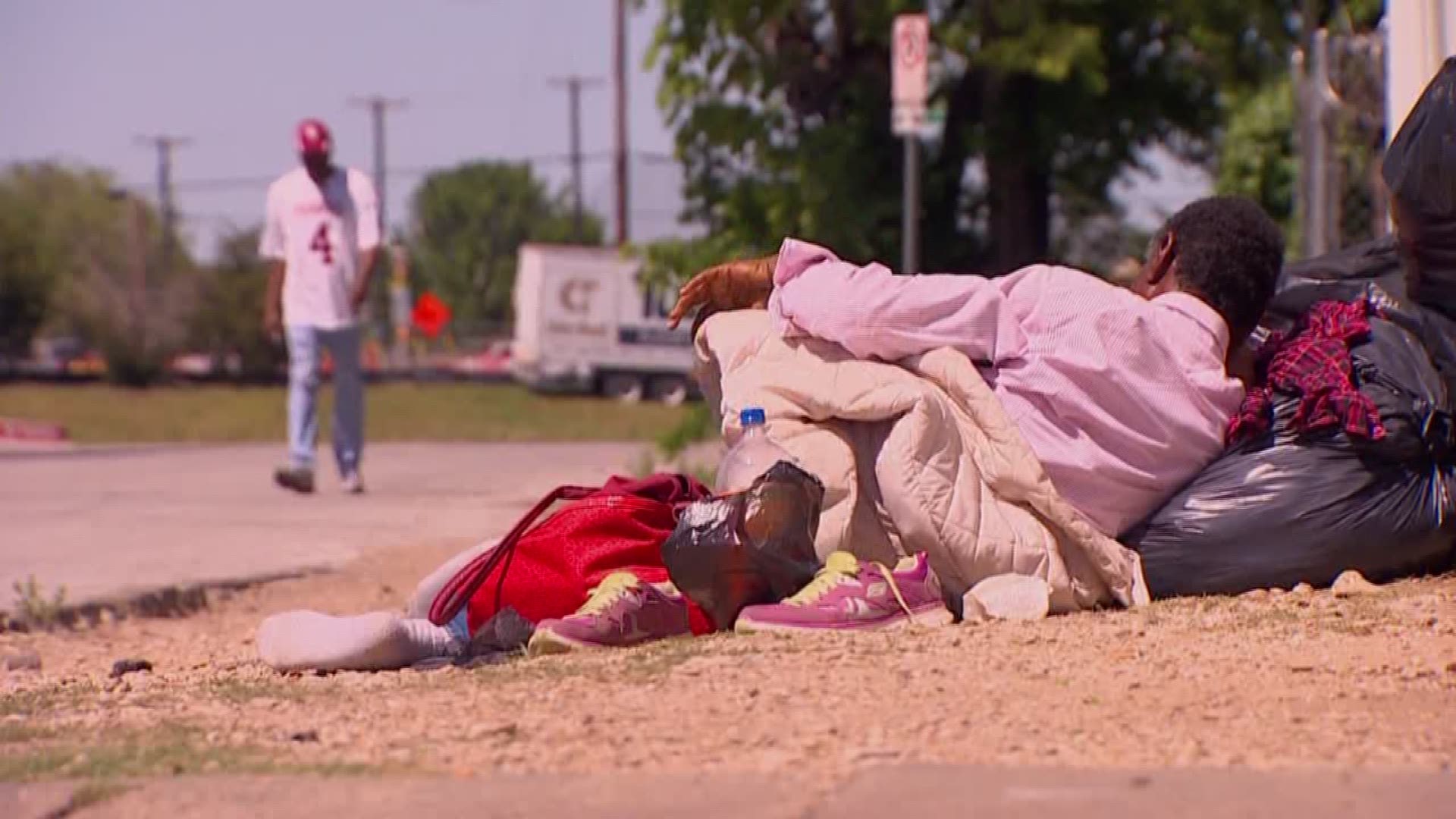FORT WORTH -- There is something about a two mile stretch of pavement called Lancaster Avenue that Bobby Roberts can’t shake.
He called it home for three years while living in a makeshift tent.
"This is no life for a human being,” said Roberts.
The 50-year-old now has a job and home that he shares with his wife.
It’s something that seemed so out of-reach just a short time ago.
"I have an apartment, a nice apartment, and five months ago I couldn't' see this,” says Roberts.
Bobby is one of hundreds of homeless folks that the DRC Community Solutions to End Homelessness attempts to help every year through its critical document specialists.
The staff members work overtime attempting to help folks living on Lancaster recover their social security numbers, birth certificates, and eventually state ID’s, as part of an effort to get them off the streets.
"Without an ID, or your critical documents, you can't do anything. You're in quicksand,” says Denise Yeager, one of the center’s specialists.
The case worker admits Bobby’s situation was especially difficult.
“We really started three years ago. There must’ve been 100 or more obstacles,” says Yeager.
Roberts' story begins as an infant in 1967.
Taken away from his birth mother by child services in Los Angeles, he was soon adopted by an older couple from Oklahoma.
But those parents passed away when he was in high school, and suddenly Bobby didn't have much direction and found himself drifting from city to city.
"Sherman, Texas, Wichita Falls, Texas, Albuquerque, New Mexico."
He says he’d mostly work odd jobs along the way.
He kept an old license, but then started using an alias that even led to a stint behind bars.
He never worried much about getting an authentic identification until he showed up years later on Lancaster.
“I would try once in a while, but they always wanted a birth certificate or things I knew I didn’t have,” says Roberts.
With the help of the DRC, Roberts was able to determine his adoption records were sealed. But they struggled to get access to the files, or Bobby’s original birth certificate or other vital information, because he couldn’t prove his own identity.
Finally, after months of back and forth, and even help from the Oklahoma governor’s office, a court signed off on unsealing the documents.
The first thing Bobby did was get a Texas ID.
“Now I have a job. It all comes back to having that ID.,” he says.
When he unlocked those documents, Bobby started searching about his family history on line. He found an obituary for the woman he thought was his birth mother. There were siblings listed.
Sure enough, he found a sister living just up I-35W in Denton.
“My hair and scalp and everything was just tingling. ‘Oh My God,’ 49 years,” says Elizabeth Brandon.
The two siblings now see each other regularly.
Brandon says by chance, the two actually attended the same Oklahoma high school years ago at the exact time without realizing who each other were. She is only ten months older.
“All those adoption records were sealed. I didn’t know my real family,” says Bobby. If you’re interested in helping the DRC, click here.

